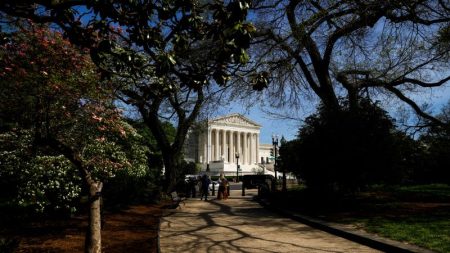A recent report by the Transportation Security Administration (TSA) revealed that there have been approximately 300 instances of passengers attempting to bypass various aspects of airport security within the last year. While only a small number of individuals successfully made it onto a plane, the TSA did not disclose the exact number. Most of the incidents involved individuals trying to enter the secure area of the airport at the passenger exit point or bypassing the TSA podium where IDs are checked. The TSA reported that 85% of those who successfully bypassed security were stopped and arrested by law enforcement for trespassing.
The TSA spokesperson attributed most of these incidents to “inadvertent and unintentional actions by the passenger” and stated that the agency immediately investigates and takes corrective action in response to any breach of security. Recent events include a 26-year-old man who managed to board a Delta plane at Salt Lake City Airport using a valid boarding pass on standby for a full flight. He was caught taking photos of other passengers’ boarding passes, one of which he used to board another flight before being removed from the plane. In another incident, a woman boarded an American Airlines flight from Nashville to Los Angeles without a boarding pass after sneaking past the ID checkpoint, although she did go through security. She was subsequently taken into custody.
The TSA defines a “security breach” as when someone completely evades security screening, and airports are implementing new technology and updates at exits to prevent unauthorized access. Measures such as one-way passage systems have been installed in new terminals at airports like Washington’s Reagan National Airport and New York’s John F. Kennedy International Airport to enhance security protocols. The agency is committed to ensuring the safety and security of passengers and continues to work with airports across the country to enhance security measures and prevent future security breaches.
In response to these incidents, the TSA is working closely with airports to implement new security measures and technology to prevent unauthorized access. The agency emphasizes the importance of identifying and addressing any breaches of security promptly to maintain a high level of safety for travelers. By collaborating with airports on the installation of new security features and updates, the TSA aims to enhance security protocols and prevent further instances of individuals bypassing critical security measures.
The TSA’s commitment to addressing security breaches and implementing corrective actions is essential to maintaining the safety and security of airport operations. By promptly investigating incidents and working with airports to enhance security measures, the TSA is taking proactive steps to prevent unauthorized access to secure areas of airports. The agency’s focus on continuous improvement and collaboration with airport authorities underscores its dedication to ensuring the integrity of airport security protocols and protecting passengers from potential threats.
















